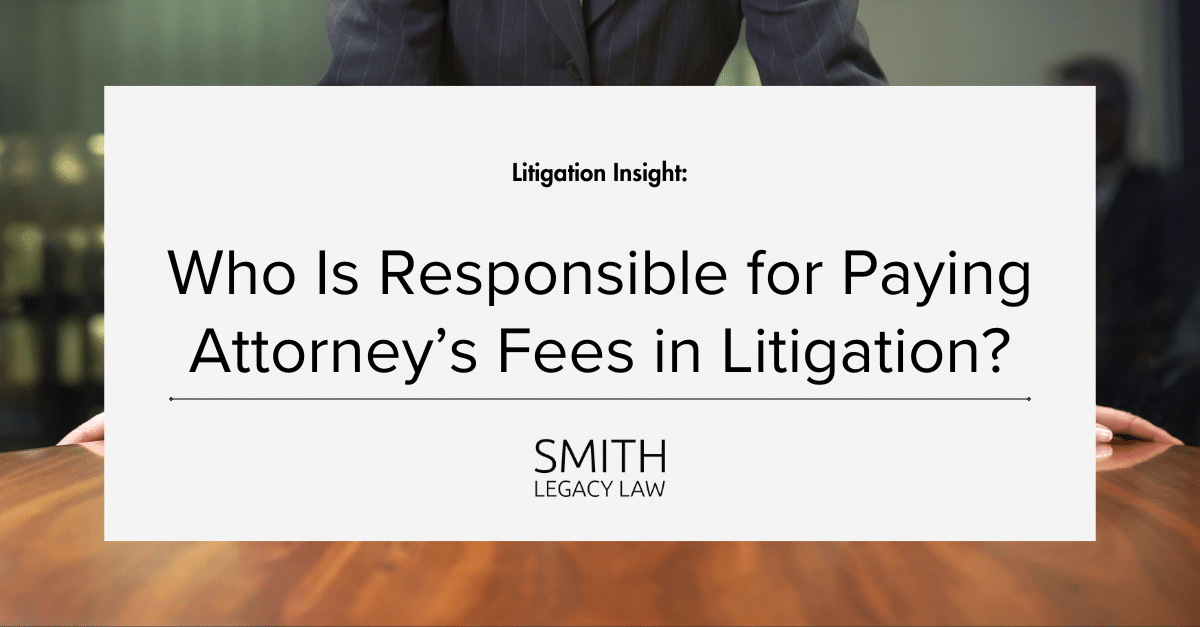If you are involved in a lawsuit, you may be wondering if there are ways that you can recover your legal fees. Generally in the U.S., each party pays for their own legal fees. This is different than in other countries that require the losing side to reimburse the winner for its legal fees as a way of discouraging frivolous litigation and persuading the parties to settle. However, there are several exceptions in the U.S. where either your opponent or another party may be responsible for paying attorney’s fees.
When Can You Recover Attorney’s Fees from a Nonparty to the Lawsuit?
In certain types of cases, someone other than your opponent in the lawsuit may be responsible for paying legal fees. For example:
- The business or employer. If a business owner, director, or officer is sued or brings an action, the business may be responsible for the attorney’s fees, provided the underlying claim either directly involves the business or the outcome benefits the business.
- Trust/Estate. If the fiduciary of a trust or estate is involved in a lawsuit as either a plaintiff or defendant and the litigation benefits the trust/estate, then the fiduciary’s attorney’s fees will be paid from the assets of the trust/estate. Where a fiduciary sues a beneficiary, the court may also order the trust/estate to compensate the fiduciary for the time spent on the lawsuit.
When Is Your Opponent Responsible for Paying Attorney’s Fees?
The most common reason an opponent may have to pay legal fees is that a contract requires it. For instance, many business contracts have an attorney’s fee clause to deter litigation. Other types of agreements that provide for payment of attorney’s fees include alternative dispute resolution clauses, indemnification agreements, settlement agreements, and releases of liability. Trust documents may also contain similar clauses.
In rare cases, a prevailing party may also be awarded attorney’s fees as part of a punitive damage award or because the other side was sanctioned. Typically, the party must be guilty of egregious behavior for the court to impose such a sanction.
Importantly, in the case of a contingency fee, an opponent is typically not liable for paying attorney’s fees. If you hire an attorney on a contingency fee basis, he or she is paid from what you recovered in the lawsuit. However, in most cases, the defendant is only paying damages, and the attorney takes his or her share of that award and gives you what is left over. The defendant does not pay extra damages to cover your attorney’s fees unless the judge specifically awards them against the defendant.
How Much Will You Pay Your Attorney?
There are several factors that go into determining legal fees. The most important thing to do is to discuss fees with your attorney so you understand what you will be charged and how your legal strategy may affect the cost of the lawsuit. We believe in being forthright about fees so clients can make well-informed decisions about how to proceed in their case. If you have a legal dispute, contact us to discuss how we can help you achieve a positive outcome.
